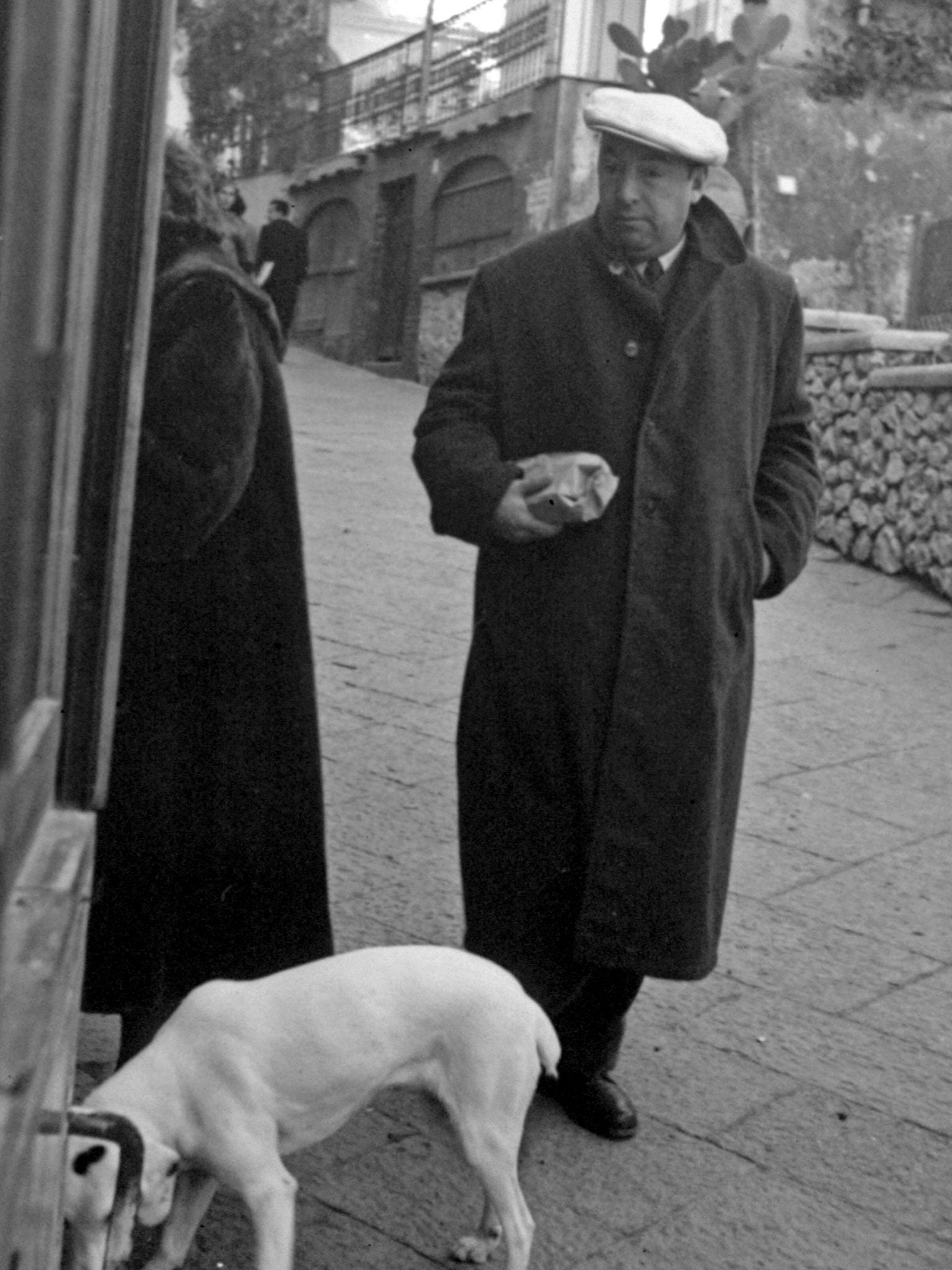Was Pablo Neruda killed by Pinochet?
When the great poet died 40 years ago in Chile, it was said to be from cancer. Now, lawyers say it was murder

Your support helps us to tell the story
From reproductive rights to climate change to Big Tech, The Independent is on the ground when the story is developing. Whether it's investigating the financials of Elon Musk's pro-Trump PAC or producing our latest documentary, 'The A Word', which shines a light on the American women fighting for reproductive rights, we know how important it is to parse out the facts from the messaging.
At such a critical moment in US history, we need reporters on the ground. Your donation allows us to keep sending journalists to speak to both sides of the story.
The Independent is trusted by Americans across the entire political spectrum. And unlike many other quality news outlets, we choose not to lock Americans out of our reporting and analysis with paywalls. We believe quality journalism should be available to everyone, paid for by those who can afford it.
Your support makes all the difference.The hunt is on for the suspected killer of one of South America’s most celebrated poets four decades after his death, which had originally been attributed to cancer.
Nobel Prize winner Pablo Neruda, described as the “greatest poet of the 20th century” and known for his romantic works, died on 23 September, 1973, after battling prostate cancer. Now prosecutors claim he was murdered on the orders of Chilean dictator General Augusto Pinochet.
Neruda was a member of the Communist Party and was a politician and diplomat under President Salvador Allende. His death at the age of 69 came 12 days after Pinochet seized power in a military coup.
The dictator’s 17-year rule would see more than 3,000 people disappear in a regime that had been accused of using death squads against its opponents.
This April, the sensational news emerged that the poet’s body was to be exhumed from its resting place in the grounds of his beachside home on Chile’s Pacific coast over growing suspicions he had been poisoned. The allegations suggest he was murdered in a clinic while undergoing treatment for cancer.
Yesterday, a judge issued an order for police to track down the man prosecutors allege may have poisoned Neruda. Lawyer Eduardo Contreras said new evidence has emerged, in addition to claims by his driver who said the poet had been “silenced” by the regime. Contreras said the doctor who testified he was with Neruda at the time of his death has changed his story.
Dr Sergio Draper now claims a doctor called Price was with Neruda. There is no record of a Doctor Price in any of the hospital’s records and Draper said he never saw the man again after leaving him with Neruda.
The prosecutor believes that whoever the man was, “the important fact is that this was the person who ordered the injection” that may have killed Neruda. The description of Price as tall and blond with blue eyes matches Michael Townley, a CIA double agent who worked with the Chilean secret police under Pinochet.
Townley was put into the witness protection programme after he admitted killing critics of the Chilean dictator in Washington and Buenos Aires.
Neruda’s body is still undergoing analysis by Chilean and international forensic scientists to discover if there is proof of foul play.
Patricio Bustos Streeter, director of Chile’s Legal Medical Service, who is coordinating the forensic team, told weekly scientific journal Nature: “The presence of bone metastasis of the prostate cancer would confirm an advanced state of the illness. On the other hand, traces of toxics could be found in the spongy part of the bone that contained the bone marrow.”
He added that the problem was the lack of medical records providing details of the drugs Neruda was taking for the illness to distinguish them from possible poisons. “But we have the advantage that several techniques to mask toxics in the body did not exist four decades ago,” he added.
Judge Mario Carroza ordered Neruda’s body to be exhumed as part of an investigation that has been running since 2011.
The enquiries started after Neruda’s former driver, Manuel Araya, alleged the poet was poisoned by agents working for Pinochet. He said an unscheduled injection was given to the poet just hours before his death and Neruda rang him from the hospital saying he was feeling sick afterwards. The Chilean Communist Party said he had not displayed symptoms associated with the advanced stage of the cancer.
Neruda had planned to head into exile in Mexico following the military coup, where he would campaign against the regime. His driver believes the dictator wanted to silence a powerful critical voice.
Neruda was buried next to his wife Matilde Urrutia in the garden of their home Isla Negra. His wife, who died in 1985, would state that Neruda did not die of cancer, although did not go as far to say he was murdered. The surviving family maintains it was the disease that killed him, but are cooperating with the investigation.
Neruda was born Neftali Ricardo Reyes Basoalto in 1904. He initially used the pen name of Pablo Neruda to prevent falling out with his family who disapproved of his being a poet. He sold all of his possessions to finance the publication of his first book Crepusculario. A year later his second book Veinte poemas de amor y una cancion desesperada made his name. He won the Nobel Prize for Literature in 1971, and was dubbed “the greatest poet of the 20th century in any language” by novelist Gabriel Garcia Márquez.
His work was introduced to millions in 1994 by the drama Il Postino, which received five Oscar nominations, winning one.
Join our commenting forum
Join thought-provoking conversations, follow other Independent readers and see their replies
Comments